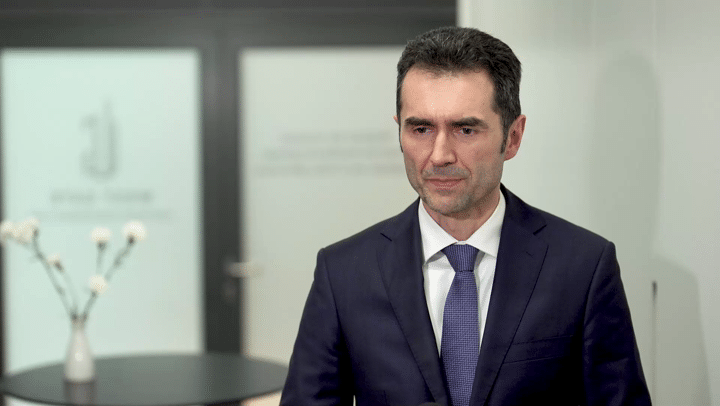The coalition government is conducting reviews of key infrastructure investments, including projects envisioned within the National Railway Program. This aims to avoid costly mistakes and prevent the execution of ineffective initiatives. “We have already noticed certain deficiencies in investments worth over 2 billion PLN, which could result in the construction of something that is not entirely functional and wouldn’t provide a good flow of train traffic,” says Deputy Minister of Infrastructure Piotr Malepszak. He has already announced changes to the existing National Railway Program. Concurrently, an audit of the Central Communication Port (CPK) project is also underway to help actualize it and guide how it should be completed, as well as its railway program.
“In the National Railway Program, there will be changes because the first few weeks of my tenure showed that it is necessary to scrutinize the scope of some investments to enhance the efficiency of what we want to build,” says Piotr Malepszak, Deputy Minister of Infrastructure responsible for railways. “We have conducted an exercise in investments worth over 2 billion PLN, where we found certain deficiencies in what we could have built, lacking full functionality and hindering the smooth flow of train traffic.”
The updated National Railway Program, covering until 2030 (with a perspective until 2032), which secures funding for strategic railway projects, was adopted by the previous government in August last year. It envisages the implementation of railway investments worth over 90 billion PLN during this time frame, of which 80 billion PLN are allocated between the years 2021-2027, and 11 billion PLN are for KPO. The objective is to achieve faster connections and shorten travel time between major centers. Priorities for the years 2021-2027 include completing started large-scale investment projects, continuing work on key TEN-T base network lines, and reducing transportation exclusion.
After a change of power in December, the new coalition government began reviewing key infrastructure investments, including those in the National Railway Program. This is expected to prevent costly mistakes and ineffective initiatives. The first few weeks revealed errors in the documentation worth 1.4 billion PLN for the reconstruction of Poznań’s railway bypass, which would have resulted in low capacity for the projected increase in the number of trains.
“It’s about making trains run faster and letting more of them run, thus improving capacity. And when trains run faster, it also translates into shorter travel times. Often these are solutions that generally serve to include more trains in the schedule, better reconciling passenger and freight traffic,” notes the Deputy Minister of Infrastructure.
Funding for railway investments in the coming years will not be lacking due in part to the billions in the National Railway Plan and KPO, as well as additional funds anticipated in the railway program of the Central Communication Port project.
“CPK, however, is associated with the construction of completely new railway lines, not the modernization of existing ones,” reminds Piotr Malepszak.
The Central Communication Port planned for several years between Warsaw and Łódź, is set to integrate air, rail, and road transport. The first phase, planned to finish in 2027, includes the opening of a new central airport for Poland, capable of handling about 40 million passengers per year. Over the following years, it is supposed to expand – up to about 65 million passengers by 2060. Additionally, the project also includes 12 new fast rail routes, 10 of which lead from different parts of Poland to Warsaw and CPK.
“In the CPK project, the railway aspect is predominant, both in terms of money and scope of work. We speak of investments in a large area of the country, various sections of new railway lines. Of the planned approx. 155 billion PLN, the majority – about 100 billion PLN – is to be spent on the construction of new railway lines. Thus, the railway dominates the CPK project, although of course, the airport itself is the most media-covered,” says the Deputy Minister of Infrastructure responsible for railways.
The CPK is expected to be the largest infrastructure investment in Poland’s history. This flagship project of the PiS government, however, has sparked controversy since the beginning, with doubts regarding its scale, cost, and schedule. That’s why the coalition government announced a comprehensive audit to check the expenditure incurred on this investment and show how to carry it forward. However, most experts agree that the current timetable of this investment is unrealistic.
“I expect the audit to reveal many details that have not been publicly discussed but have a significant impact on the scope and cost of this project. I predict that we will proceed with the construction of new railway lines, implementing priorities, and make a decision regarding the construction of the new airport. At the same time, I predict a decision related to the extent of work and the expansion of existing airports,” predicts Piotr Malepszak. “As for the railway lines in the CPK project, it is important to set priorities because not everything can be built at once. We do not have sufficient human, equipment, and financial resources to start everything at once. That’s why we start with priorities: the Warsaw – Łódź railway line, the Łódź tunnel, and further sections towards Wroclaw and Poznan. This is to be the new communication backbone on the East – West axis.”
As reported by Prime Minister Donald Tusk during the Security Council, the railway program has so far spent 0.5 billion PLN, but no kilometer of track has been built, there are no building permits, except for the tunnel under Łódź, which has not yet been excavated. The Prime Minister also announced the intention to prepare a project of changes in the law on the Central Communication Port so that work related to this investment could be taken over by the Ministry of Infrastructure.
